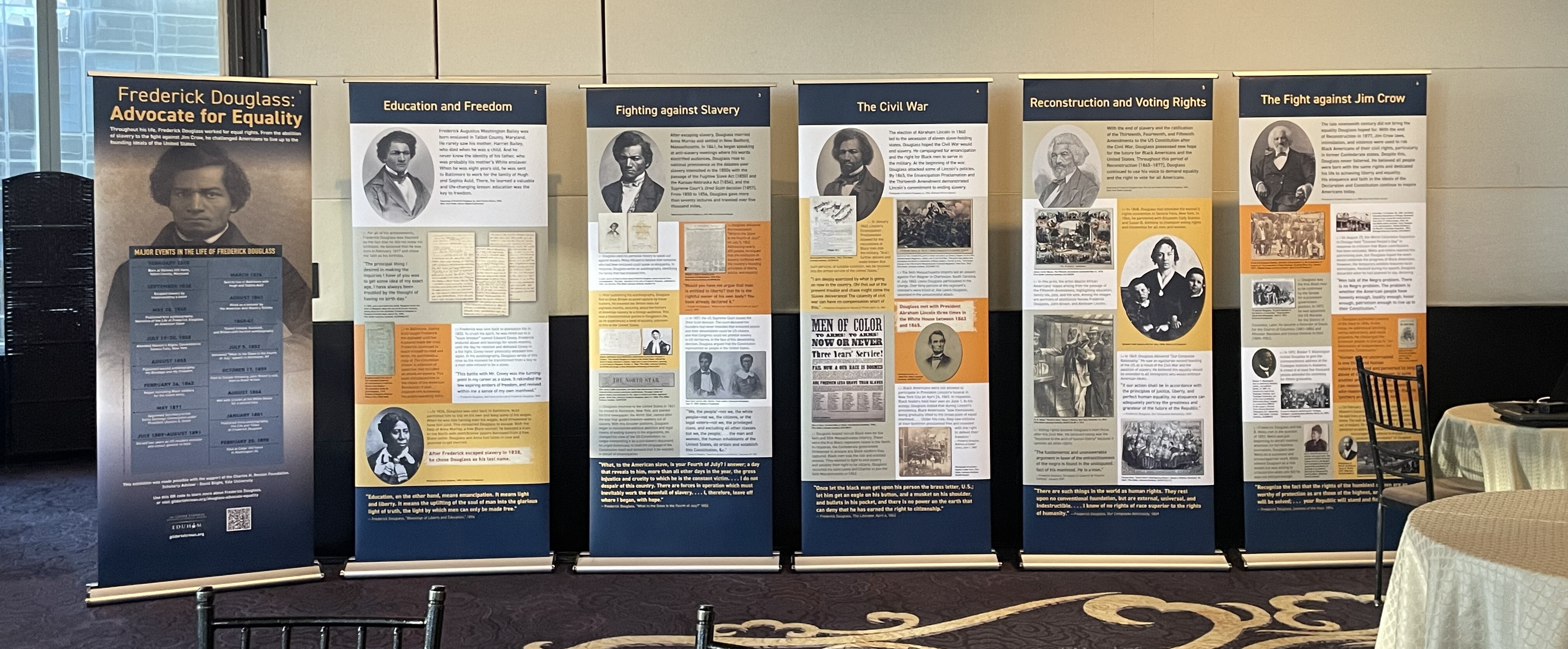Many essays about Frederick Douglass and his times have been published on the Gilder Lehrman Institute website and in History Now, the online journal of the Gilder Lehrman Institute. The selected essays listed below provide historical perspective for teachers, students, and general readers.
The first essay is open to everyone for free. The rest of the essays are available by subscription to History Resources or History Now (both free for K–12 teachers and students in the free Gilder Lehrman Affiliate School Program; to join visit this page: Affiliate School Program).
Frederick Douglass: An Example for the Twenty-First Century by Noelle N. Trent (National Civil Rights Museum)
Director of Interpretation, Collections, and Education at the National Civil Rights Museum at the Lorraine Motel, Noelle N. Trent writes about Frederick Douglass’s legacy and influence on the present day in this essay.
“The Merits of This Fearful Conflict”: Douglass on the Causes of the Civil War by David Blight (Yale University)
Historian David Blight discusses Douglass’s reflection on the Civil War and his fear that Americans were forgetting about the root causes of the war in their efforts to reconcile the North and the South.
Frederick Douglass: From Slavery to Freedom by Steven Mintz (University of Texas at Austin)
Historian Steven Mintz writes about Douglass’s journey from being enslaved to becoming one of the most prominent Black activists of his time.
The Lion of All Occasions: The Great Black Abolitionist Frederick Douglass by Manisha Sinha (University of Connecticut)
Historian Manisha Sinha writes about Douglass’s work as an abolitionist in this essay from the Winter 2018 issue of History Now, “Frederick Douglass at 200.”
Douglass the Autobiographer by Robert S. Levine (University of Maryland, College Park)
Professor Robert S. Levine discusses Frederick Douglass’s autobiographies and writing in this essay from the Winter 2018 issue of History Now, “Frederick Douglass at 200.”
Frederick Douglass, Orator by Sarah Meer (University of Cambridge)
Sarah Meer, a professor of nineteenth-century literature, explores Douglass’s work through his speeches.
